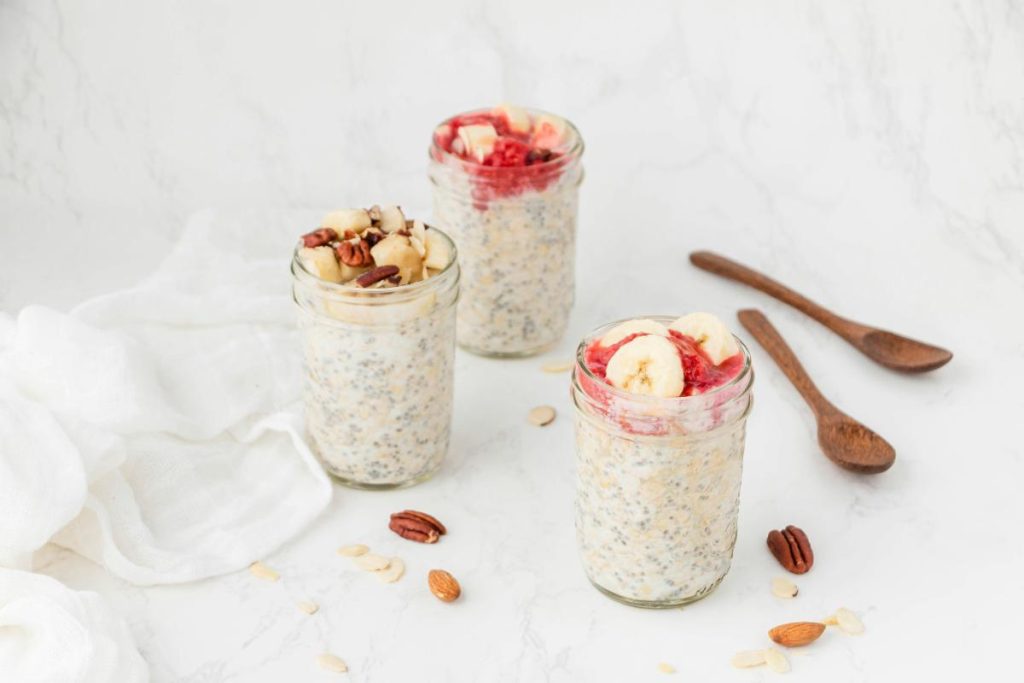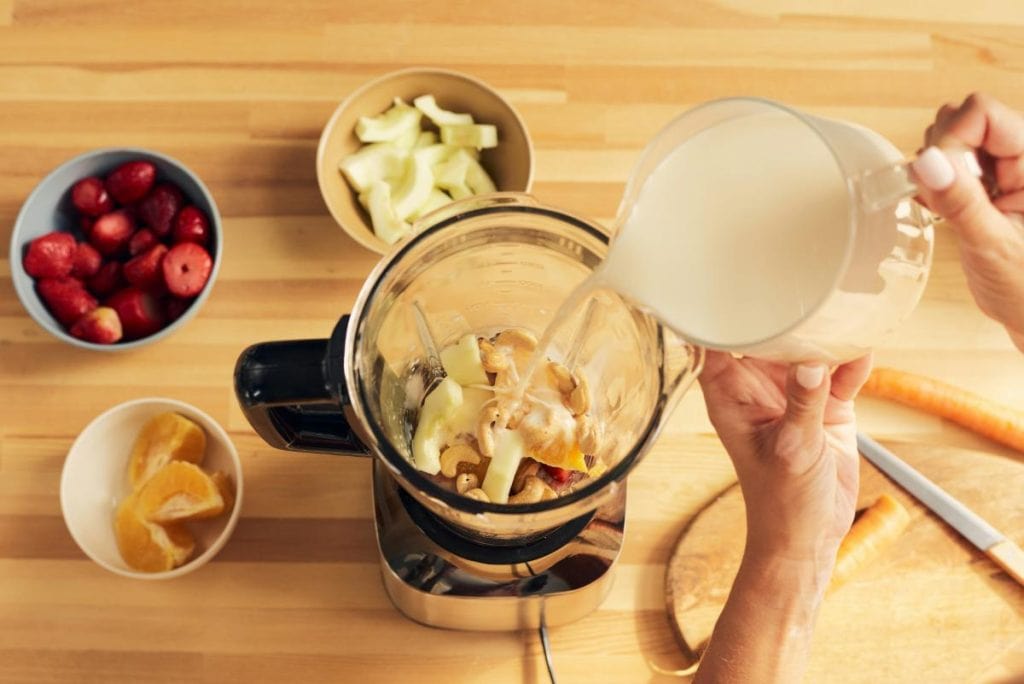There’s something special about starting your day with a delicious, organic breakfast. You know you’re treating yourself to something wholesome that fuels your body right.
Just because it’s healthy doesn’t mean it has to be boring. From fluffy organic pancakes to vibrant smoothie bowls, the options are endless and exciting. Dive into these seven mouth-watering breakfast ideas that make eating organic a delight, not a chore.
Whether you’re a seasoned pro or just beginning your journey towards an organic lifestyle, you’ll find these breakfast ideas easy to prepare and simply irresistible. Plus, it’s a fantastic way to set a positive tone for the rest of your day.

Understanding Organic Foods
Eating organic means choosing food grown without synthetic pesticides, genetic modification, or artificial additives. Prioritize understanding what qualifies as organic, why organic food matters, and how to recognize certified organic labels.
What Makes Food Organic
Organic foods are grown naturally, using crop rotation, composting, and biological pest control instead of synthetic chemicals. Organic animals have outdoor access and aren’t given hormones or antibiotics. The USDA regulates these standards to ensure ecological balance and biodiversity.
The Importance of Eating Organic
Choosing organic food can benefit your health and the environment. Organic produce often contains fewer pesticide residues. Additionally, organic farming practices help preserve soil health, reduce pollution, and conserve water. For animal products, organic standards ensure better animal welfare, with animals being raised in more humane conditions.
Identifying Organic Labels
Recognizing organic foods involves looking for certifications like the USDA Organic seal, which indicates at least 95% organic ingredients. Other labels include “100% Organic” and “Made with Organic Ingredients.” Familiarizing yourself with these labels helps make informed shopping choices.
Organic Breakfast Ingredients
Discover the essential ingredients that can transform your breakfast into a delicious and healthy organic meal. Embrace the flavors and nutritional benefits of organic staples, fresh fruits and vegetables, and wholesome grains and proteins.
Must-Have Organic Staples
Stock your pantry with organic staples like honey, nuts, seeds, and natural sweeteners. Organic oats are versatile for porridge, overnight oats, or smoothies.
Organic nut butters add protein and flavor, while chia and flaxseeds provide omega-3s and fiber for smoothies or yogurt. Coconut oil and almond milk are excellent dairy alternatives.
Organic Fruits and Vegetables
Including fresh, organic fruits and vegetables in your breakfast can greatly enhance its nutritional value. Organic berries, such as blueberries, strawberries, and raspberries, are not only delicious but also packed with antioxidants and vitamins.
Vegetables like spinach, kale, and avocado are fantastic for adding nutrients. You can blend them into smoothies or make savory dishes like omelets. Consider buying organic from places like Whole Food Earth. This ensures these fruits and veggies are free from harmful pesticides, offering cleaner, healthier produce.
Organic Grains and Proteins
Grains and proteins fuel your day. Choose organic grains such as quinoa, barley, and millet for a hearty and nutrient-dense breakfast. These grains can be cooked and paired with fruit or nuts for added flavors.
Organic eggs are versatile for recipes like scrambled eggs and frittatas. Organic Greek yogurt provides a creamy base for fruits and granola. Nuts, beans, and legumes offer valuable protein for various dishes. Choosing organic ensures higher quality and fewer additives.
Enjoy a healthier start to your day with these organic ingredients, and explore a wide variety of premium whole foods to make your breakfasts even more exciting and nutritious.
Delicious Organic Breakfast Recipes
Starting your day with a nutritious and tasty organic breakfast sets the right tone for a healthy lifestyle. Here are some simple, yet mouth-watering options you can try at home.
Smoothies and Juices

Organic smoothies and juices are a quick and refreshing way to pack in nutrients. Consider blending a mix of organic spinach, kale, and ripe bananas with a splash of almond milk. Add chia seeds for some extra fiber.
For juice, try a combo of organic carrots, apples, and a piece of ginger. This mix not only tastes great but also boasts a good dose of antioxidants. Don’t forget to experiment with seasonal fruits like berries or mangos.
Organic Oatmeal Variations
Oatmeal is a comfort food that also happens to be a powerhouse of nutrition. Go for organic rolled oats and cook them in coconut milk for a creamy texture. Top with fresh fruits, nuts, and a drizzle of honey.
If you crave something savory, cook your oats in vegetable broth and add spinach, mushrooms, and a poached egg. This variation offers a hearty, warm breakfast that fuels you for the day ahead.
Heart-Healthy Organic Pancakes
Who can resist pancakes in the morning? Use organic whole wheat flour, eggs, and almond milk for the batter. Add some mashed bananas or blueberries for natural sweetness and extra nutrients.
Cook on a hot griddle until golden brown. Serve them with a dollop of Greek yogurt and a sprinkle of flaxseeds. This combination is not only delicious but also keeps your heart in good shape.
Savory Breakfast Ideas
Sometimes you just need something savory to start your day. Try an organic veggie scramble with bell peppers, onions, and spinach. A bit of organic feta cheese adds a nice tanginess.
For a more filling option, toast a slice of whole grain bread and top it with organic avocado slices. Add a sprinkle of sea salt and chili flakes for an extra kick.
These breakfast ideas focus on organic ingredients that are healthy and delicious, offering a fantastic way to begin your day with balanced nutrition.
Maintaining an Organic Diet
Keeping an organic diet requires planning, thoughtful shopping, and mindfulness when dining out. Learn how to incorporate organic practices into your everyday life effectively.
Planning and Preparing Ahead
Preparing meals ahead of time ensures that you stick to your organic diet without feeling overwhelmed. Start by making a meal plan for the week, focusing on in-season fruits and vegetables, and incorporating protein-rich organic meats or plant-based options.
Batch cooking and freezing can also save you time. For example, cook a large pot of organic quinoa or brown rice and freeze it in smaller portions. This way, you can easily add it to any meal during the week.
Organization helps you reduce food waste. Keep an inventory of your pantry, and plan meals around the ingredients you already have. This way, you can avoid unnecessary purchases and ensure you use up your organic products before they spoil.
Shopping Organic on a Budget
Buying organic can be more expensive, but there are ways to manage costs. Focus on seasonal produce, which tends to be cheaper and fresher. Farmers’ markets often offer more affordable organic options compared to conventional grocery stores.
Prioritize your purchases. Not everything you buy needs to be organic. Refer to the Dirty Dozen list to know which items are most important to buy organic due to higher pesticide residues. Conversely, the Clean Fifteen list highlights produce with the least pesticide contamination.
Look for sales and bulk discounts. Many stores offer specials on organic items. Buying in bulk can also save money; consider splitting purchases with friends or family if you don’t need large quantities.
Staying Organic Outside the Home
Dining out while maintaining an organic diet can be challenging but manageable. Research restaurants beforehand. Many places now offer organic options, so looking at menus online can help you choose the best spot.
When attending social events, bring your own organic snacks or drinks. This ensures you have something to enjoy that aligns with your dietary goals and can also introduce others to organic food.
Have simple, go-to meals that you can quickly prepare if organic options aren’t available. For instance, keeping a stash of organic nuts, fruits, and whole-grain crackers in your bag can save you when you’re on the move.
Wrap Up
An organic breakfast fuels your body with wholesome nutrients and avoids harmful chemicals. With options like fluffy pancakes and vibrant smoothie bowls, eating healthy is exciting and easy. These breakfast ideas are perfect for anyone on an organic journey.
By choosing organic foods, you improve your health and support sustainable farming. Embrace these nutritious, tasty breakfast ideas to start your day positively.
